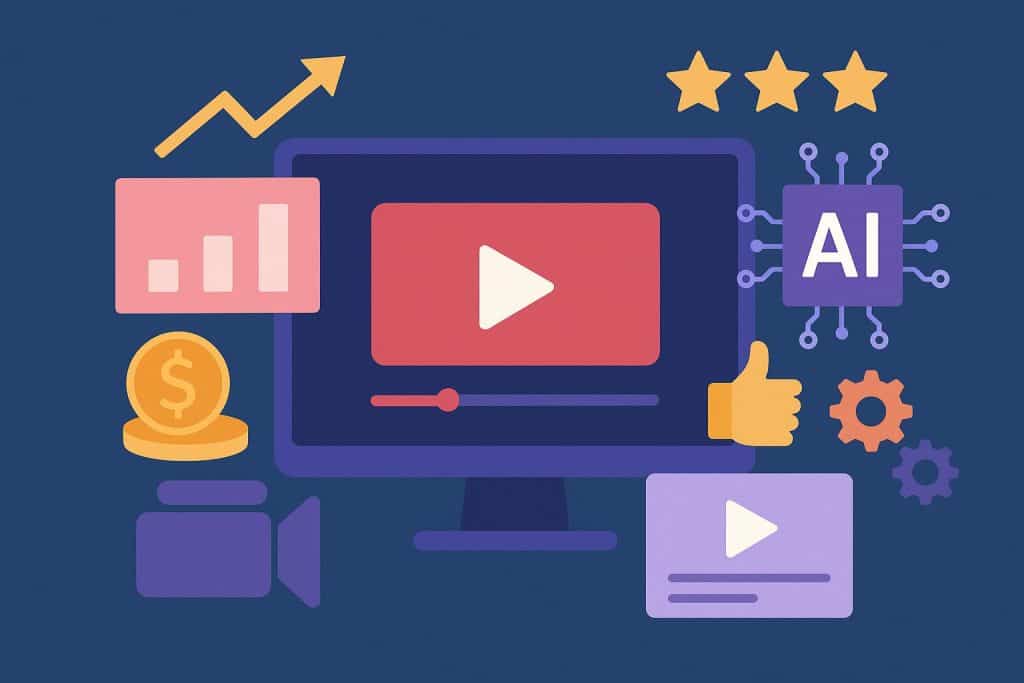Artificial intelligence is changing not only our world but also how businesses create and share content online. From marketing teams to independent creators, more people now use AI tools to speed up writing and maintain quality. The technology supports every phase of content production from research to final edit, and it is reshaping how our information reaches audiences. Understanding the main benefits helps teams use AI thoughtfully and avoid common pitfalls. It is also important to recognise that AI works best when it partners with human judgement and clear editorial standards.
Improved productivity and faster workflows
AI tools can produce first drafts quickly, so writers spend more time on strategy and polishing. Generating topic ideas and suggested headlines takes only seconds rather than hours. This lets small teams scale their output without hiring many new people. The result is more consistent publication schedules and the ability to respond to trends with timely content. Faster workflows mean campaigns can be iterated more often and marketing teams can test different messages to see what resonates with customers.
Consistent tone and brand voice
Maintaining a steady voice across web pages, emails, and social posts is easier with AI. Tools learn from style guidelines and sample content so they produce copy that matches brand expectations. Consistency builds trust because audiences recognise a familiar tone and approach across channels. AI reduces the risk of mixed messages and helps brands keep their identity clear. This advantage proves valuable when multiple contributors work on the same project or when agencies manage content for different markets.
Enhanced creativity and idea discovery
AI sparks creativity by suggesting fresh angles and unexpected combinations of concepts. When writers face a blank page, AI prompts can offer starting points that jumpstart the creative process. The tools can surface trending topics and common questions that audiences ask, which improves relevance. Human editors remain essential for refining voice and ensuring that ideas align with brand values. Combining human insight and machine suggestions leads to richer content that balances originality with audience intent.
Better search engine performance
Search engine optimization is a strong advantage of using AI tools. By recommending keywords to improve readability and structuring content for search engines, AI helps pages attract more organic traffic. The tools can also suggest internal links, meta descriptions and headings that make content easier to crawl. When paired with human expertise, this leads to content that is both engaging and discoverable. In some industries, AI can also help analyse content formats commonly used by users searching for topics such as real money online slots, ensuring teams understand search behaviour trends that shape content creation. Over time, AI analysis can reveal which topics and formats consistently perform well so teams can focus on the approaches that deliver the best return.
Cost-effective content that scales
Producing content in-house can be expensive and slow. AI reduces costs by speeding up drafting and research so teams can do more with less. This is especially helpful for freelancers and small businesses that need professional content without high overhead. Investing in AI increases output while freeing the budget for design promotion and audience building. The savings can also be reinvested into creative experiments that might previously have been too costly or time-consuming to attempt.
Improved personalization and audience targeting
AI enables more precise personalization by analysing user data and adapting messages to different segments. Content can be tailored for specific tastes, behaviours and needs without writing dozens of separate pieces manually. Personalization increases engagement because readers receive content that speaks directly to their interests. Marketers can create variations of the same core message that perform differently across email, social and landing pages and use real-world performance to refine future campaigns and offers.
Faster multilingual content and wider reach
Creating content in multiple languages often requires expensive translation and localisation. AI can generate or help adapt content for other languages and cultures more quickly than traditional methods. This does not replace human translation, but it can produce workable drafts that skilled editors refine. Faster multilingual production helps businesses reach global audiences and test markets without long lead times. It also supports inclusive communication by making information available to a broader set of readers and potential customers.
Responsible use and ethical considerations are important when adopting AI for content. Teams should verify facts, protect user privacy and avoid biased or harmful language. Regular audits help uncover failure modes and keep writing aligned with company values. Training staff to edit and contextualise AI outputs is a small investment that preserves authenticity and limits risk. When combined with good governance, AI becomes a reliable collaborator rather than a blind shortcut. This approach builds trust and long-term value for audiences.
Final thoughts
AI content generation is not about replacing human creators. It is about amplifying skills and streamlining work so people can focus on higher-value tasks. When used responsibly, AI improves productivity, maintains consistency, sparks creativity, enhances search performance, lowers costs and supports personalization. Those benefits make it a powerful resource for any team looking to grow its online presence.
Adopting AI requires clear guidelines, human oversight and continual review to ensure quality and originality. With the right approach, AI can become an effective partner in content strategy, helping teams produce material that connects with audiences and performs well on search engines.

